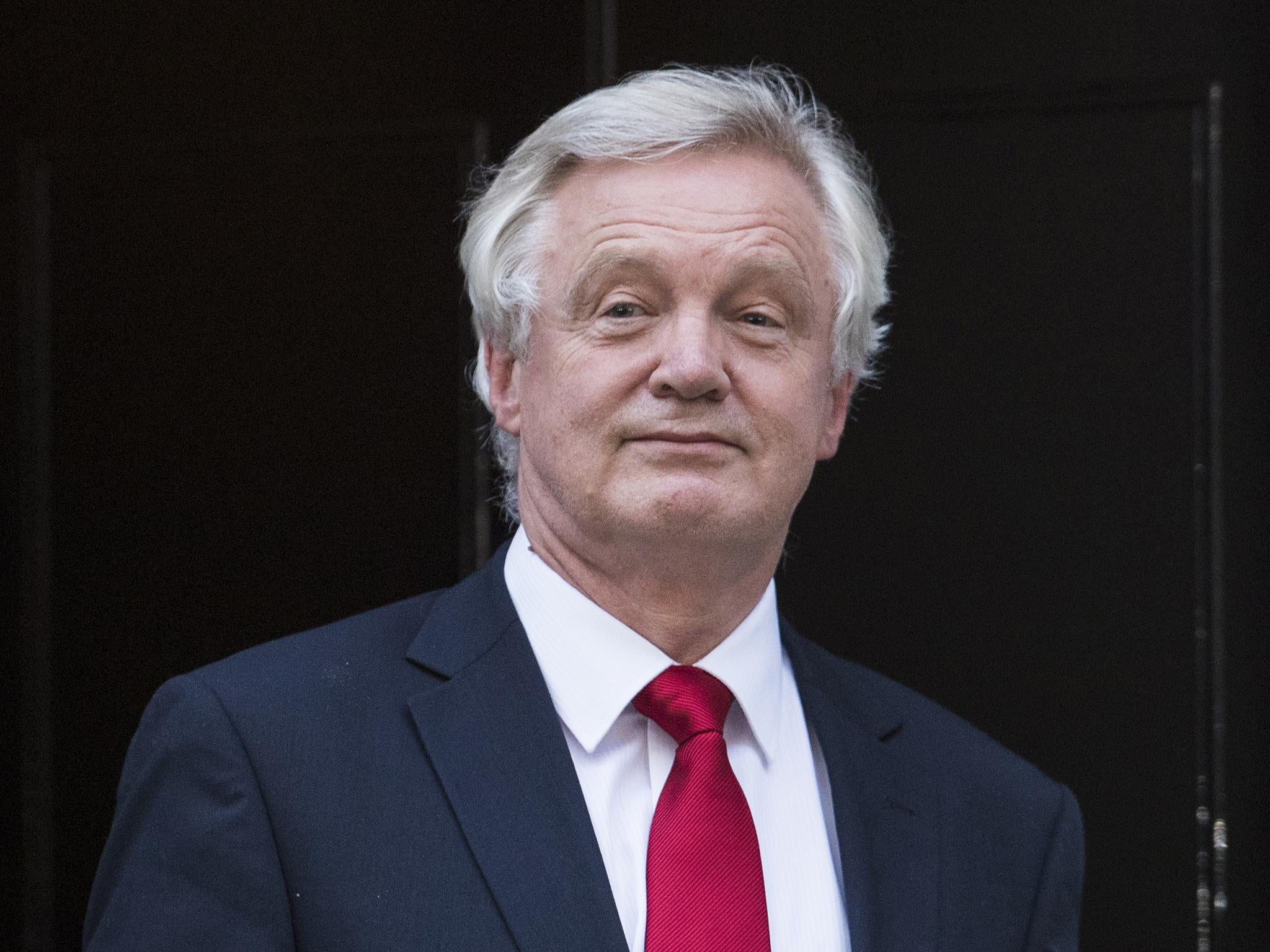Brexit minister David Davis: UK can deport new EU migrants and still get good deal on single market access
'We have a mandate to control our borders and take back control of our country'

Your support helps us to tell the story
From reproductive rights to climate change to Big Tech, The Independent is on the ground when the story is developing. Whether it's investigating the financials of Elon Musk's pro-Trump PAC or producing our latest documentary, 'The A Word', which shines a light on the American women fighting for reproductive rights, we know how important it is to parse out the facts from the messaging.
At such a critical moment in US history, we need reporters on the ground. Your donation allows us to keep sending journalists to speak to both sides of the story.
The Independent is trusted by Americans across the entire political spectrum. And unlike many other quality news outlets, we choose not to lock Americans out of our reporting and analysis with paywalls. We believe quality journalism should be available to everyone, paid for by those who can afford it.
Your support makes all the difference.Britain could begin denying European migrants the right to stay in the country months before it leaves the EU and, at the same time, keep the UK’s tariff-free access to the single market, according to the newly-appointed Brexit minister David Davis.
Setting out his vision for how the UK’s departure from the bloc would work in practice, Mr Davis said the government had been given “a mandate to control our borders and take back control of our country”.
He told Sky News he was unable to guarantee the status of EU nationals living in the UK before negotiations had even begun, suggesting that to do so would attract a “a big rush to try to grab a set of advantages” currently available in Britain.
A “generous settlement” would be reached for EU migrants living in the UK as well as British citizens in Europe, Mr Davis said, while warning that those who arrive after a set date could be blocked from receiving an indefinite right to remain.
Mr Davis, who alongside the international trade secretary Liam Fox was given a newly-created role in Theresa May’s cabinet, appeared to suggest Britain could take a tough stance going into negotiations with Europe and come away with unfettered access to the single market - something other European leaders have said is impossible.
He said: “I think in the next year or two we are going to see the Europeans change away from their initial ‘Project Fear’ stance, if you like, towards a stance now taken by the German equivalent of the CBI - we must talk to the Brits to ensure free trade works in both directions.
“They know what we’ve always said, that they depend as much - more actually - on us, than we do on them.”
Responding to comments made by Mr Davis about EU nationals coming to live and work in the UK, the SNP's Europe spokesman Stephen Gethins said: "It is shameful that instead of trying to offer any sort of reassurance for EU nationals living and working in the UK, the Tories are content to use EU nationals as bargaining chips in their Brexit negotiations.
"David Davis's comments lay bare the priorities of Theresa May's 'nasty party' cabinet and once again show how unprepared the Leave side and the UK Government were for the possibility of a Brexit vote.”
Mr Davis also suggested that Article 50, the legal process through which the UK would officially set the clock ticking on its two-year Brexit negotiations, would be triggered "early next year".
His remarks paint a different picture of Brexit than that presented by the new Prime Minister, who has said she will try to build consensus before launching formal negotiations.
Speaking later on the BBC’s Sunday Politics, the former attorney general Dominic Grieve insisted MPs must have a vote on whether to trigger Article 50, which could give the Commons significant influence over the Government's timetable for leaving the EU.
"We undoubtedly do need a vote in Parliament," the Tory MP said.
"The idea that a government could take a decision of such massive importance to the United Kingdom without parliamentary approval seems to me to be extremely far-fetched.
"It's not about law, it's about convention and reality."
Mr Davis expanded on his ideas for how to prevent “a potential increase in those travelling to Britain” in an interview with the Mail on Sunday.
Join our commenting forum
Join thought-provoking conversations, follow other Independent readers and see their replies
Comments